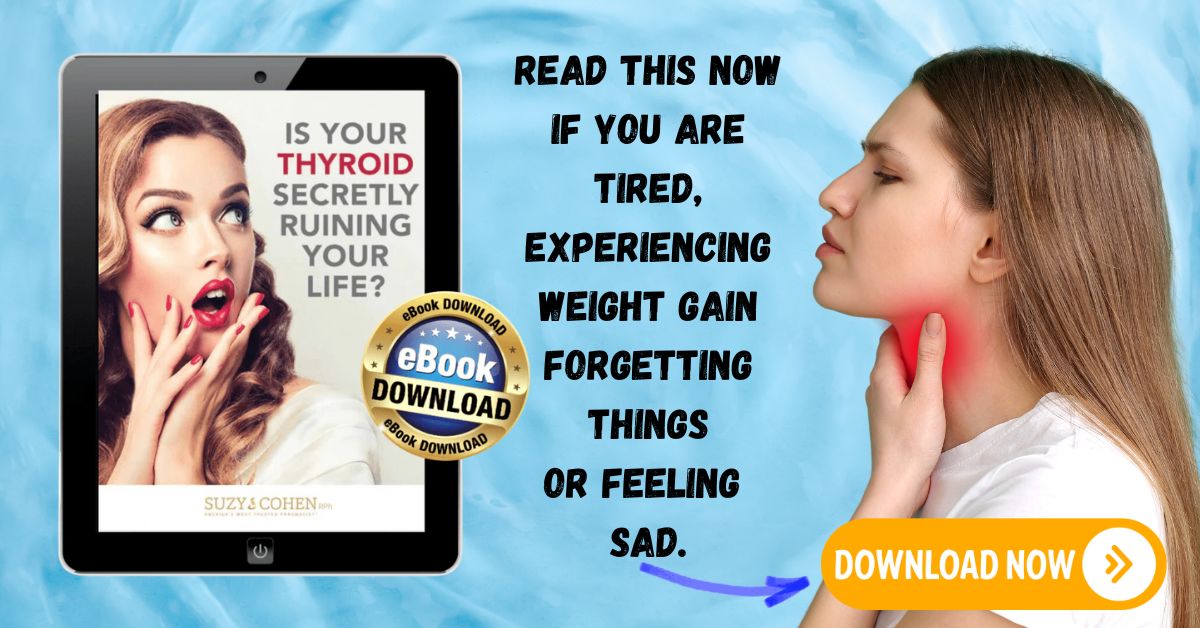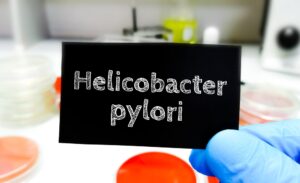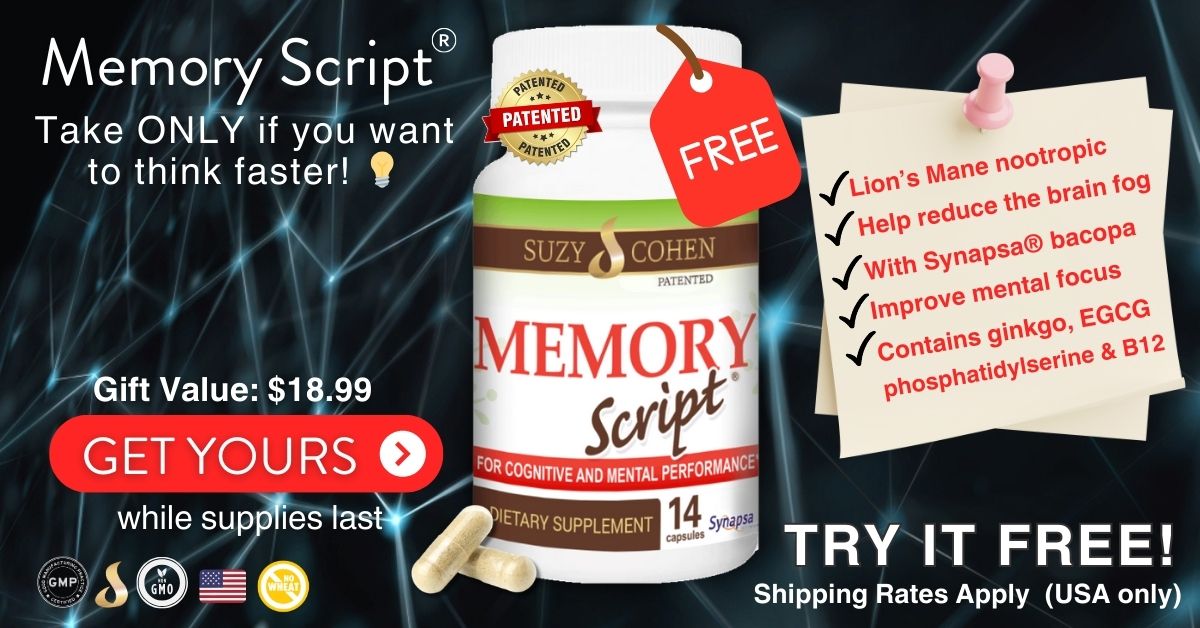What's On This Page?
ToggleI’ve written about the gut numerous times over the years and also about betaine with pepsin, a digestive acid. Today’s article is more about how you might support yourself with betaine with pepsin if you have thyroid disease.
Betaine with pepsin supplements (or even betaine without the pepsin) are dietary supplements that some people find helpful, and others find painful (because it can cause heartburn!)
Let’s explore the pros and cons of betaine with pepsin supplement which I myself took for about 6 months before developing reflux and stopping. It worked great for a while, but then I had to stop. But you and I are different, so let’s talk through it because some people need life-long therapy, and others can’t take it for a single day!
As you know, digestive health is a cornerstone of overall well-being, playing a crucial role in nutrient absorption and immune function. You may not realize this but most of your serotonin is made in the gut too.
We talk about probiotics all the time, but there’s something else I think you should consider. Acid!

When I say “acid” I’m referring to supplements of betaine HCL with pepsin. This supplement helps you absorb from your meals various nutrients including protein, calcium, iron and vitamin B12. It could also enhance digestive enzyme processes, and that would reduce antigens floating around in your gut, making your autoimmune disease worse!
It’s not for everyone – in fact it could cause heartburn in some of you, but in others, it may be the very thing you need to feel better!
Among the myriad of supplements aimed at enhancing digestive health, betaine with pepsin stands out for its potential benefits, especially for individuals with autoimmune hypothyroidism, as in Hashimoto’s thyroiditis or what I sometimes call “hashi.”
The Connection Between Low Stomach Acid and Thyroid Disorders
Research indicates that individuals with Hashi’s and other forms of hypothyroidism often experience reduced stomach acid levels, a condition known as hypochlorhydria, or even an absence of stomach acid, termed achlorhydria.
It’s a headscratcher for most people because they WANT lower acid and less heartburn, so how could achlorhydria make thyroid problems worse? I’ll get to more symptoms but one hallmark feature is early satiety, constipation, DYSPHAGIA, and a feeling of fullness right after eating.
You may also be interested in my other article on hypothyroidism, The Top 11 Supplements for Hypothryoidism: A Buyer’s Guide.
This reduction in gastric acidity causes all kinds of problems. Let me go over some of those now:
- Increased risk of foodborne illnesses due to inadequate sterilization of pathogens. With achlorhydria, you are more likely to contract parasites from food because there isn’t enough of your natural gastric acid there to ‘sterilize’ it and kill pathogens.
- Development of food sensitivities as a result of incomplete protein digestion. This will exacerbate autoimmunity.
- Small Intestinal Bacterial Overgrowth (SIBO) from unregulated bacterial growth.
- Nutrient deficiencies, particularly calcium, iron, and vitamin B12 which is needed for healthy thyroid hormone synthesis and utilization. Here’s a PAPER on the National Institute of Health’s site discussing all the nutrients suppressed when you have achlorhydria.
Moreover, prolonged low stomach acid (like for months or years) may result in hypergastrinemia, potentially leading to gastrointestinal tumors or cancer!
Betaine HCl and Pepsin: A Possible Digestive Aid for You
Betaine HCl and pepsin are components of gastric juice that facilitate the digestion of protein-containing foods, making nutrients more available for absorption. Their role is particularly crucial for the assimilation of protein, calcium, vitamin B12, and iron.
Pepsin, a digestive enzyme, aids in breaking proteins into smaller peptides, enhancing absorption in the small intestine. I put a full dose of pepsin in my remarkable formula called HashiScript® which you can learn about HERE.
Clinical Evidence and Recommendations
A survey of Hashimoto’s patients showed that significant benefits could be obtained from supplements containing betaine HCl and pepsin. They saw positive changes in energy levels, pain sensation, and mental health. This suggests a widespread issue of stomach acid deficiency among people with Hashi.
However, I have to be prudent and warn you that supplementation must be approached with caution. You don’t want to induce heartburn! Excessive use when it isn’t indicated can lead to stomach irritation, heartburn, and certain individuals (like those with peptic ulcers, gastritis, or active H. pylori infections), should AVOID betaine completely! Speaking of H. pylori, you may be interested in this article I wrote, 10 Medical Conditions Linked to H. Pylori.
Additionally, concurrent use with blood thinners, NSAIDs like naproxen or ibuprofen, steroids, and acid-suppressing medications is not recommended. I always think it’s best to ask a holistic practitioner about starting a new supplement, just in case.
Proper Dosing and Alternatives
Dosing of betaine with pepsin should be personalized, starting with just one capsule if you eat a protein-rich meal. Go from there.
Adjust (and go up to two capsules) if you don’t get any ‘backlash’ and keep adding a capsule with each meal. Many people need 2 or even 3 capsules with a meal. The time you feel the burn is the time to back off. If you feel the ‘burn’ at 3 capsules, that means you need only 2.
If you feel a burn with one capsule, you don’t need it at all! That means you have enough gastric acid.
The rule of thumb is if you start feeling a burning sensation it’s time to put the supplement on pause or back off the dose. Work with a practitioner to be sure of what you need.
On the flip side, if you’re seeing a positive shift in your symptoms, stick with the betaine with pepsin supplementation. However, if there’s no noticeable change after giving it a one or even two-week trial, it might be best to discontinue it. It’s not right for everyone. It’s just an option and I like you to be informed and have options.
Alternatives to Betaine with Pepsin
Maybe you don’t want to supplement like betaine but you want to try something similar??? If that’s the case, alternatives for supporting stomach acid include diluted apple cider vinegar (ACV) or lemon juice, although again, these should not be used by individuals with ulcers or gastritis.
I wrote an article on ACV which you can read about here, Apple Cider Vinegar – A Cure for Everything?
A Clinical Perspective of Betaine with Pepsin
The insight into low stomach acid’s role in thyroid disorders underscores the importance of comprehensive health strategies that include nutritional support.
Betaine with pepsin supplementation offers a promising avenue for enhancing digestive health, thereby potentially alleviating symptoms associated with thyroid disorders.
Summary
The consideration of betaine with pepsin as a digestive aid highlights the interconnectedness of our gut to our thyroid health. By addressing underlying digestive issues, with betaine, or with digestive enzymes that break down proteins, you can take another step towards improving your health and well-being.
If you notice improvement in your symptoms, continue taking Betaine with pepsin supplements, but if there is no benefits then stop taking it. Also, if it causes acid reflux, you’ll want to stop taking it, or back off the dose. If you get heartburn or indigestion, you don’t need it.

Suzy Cohen, has been a licensed pharmacist for over 30 years and believes the best approach to chronic illness is a combination of natural medicine and conventional. She founded her own dietary supplement company specializing in custom-formulas, some of which have patents. With a special focus on functional medicine, thyroid health and drug nutrient depletion, Suzy is the author of several related books including Thyroid Healthy, Drug Muggers, Diabetes Without Drugs, and a nationally syndicated column.



